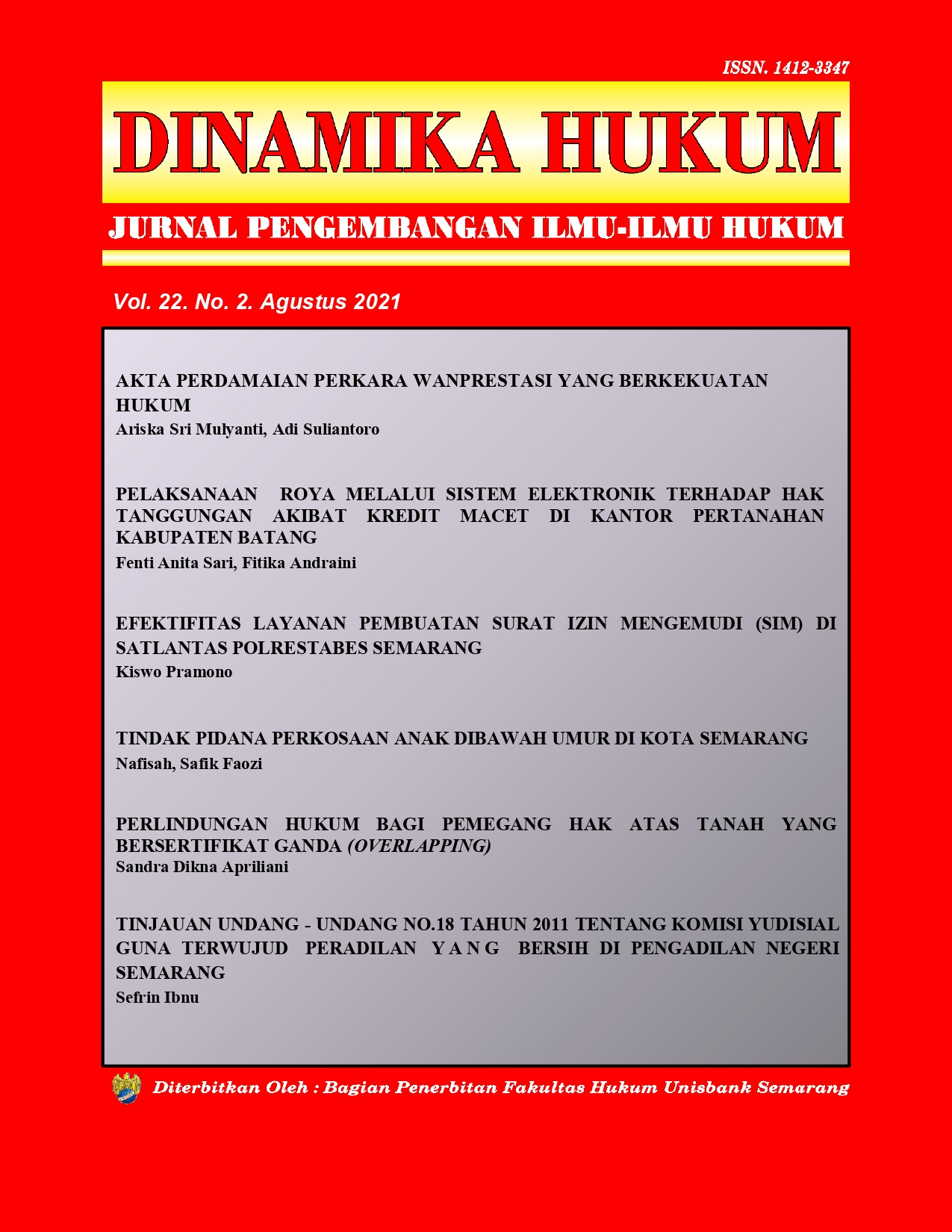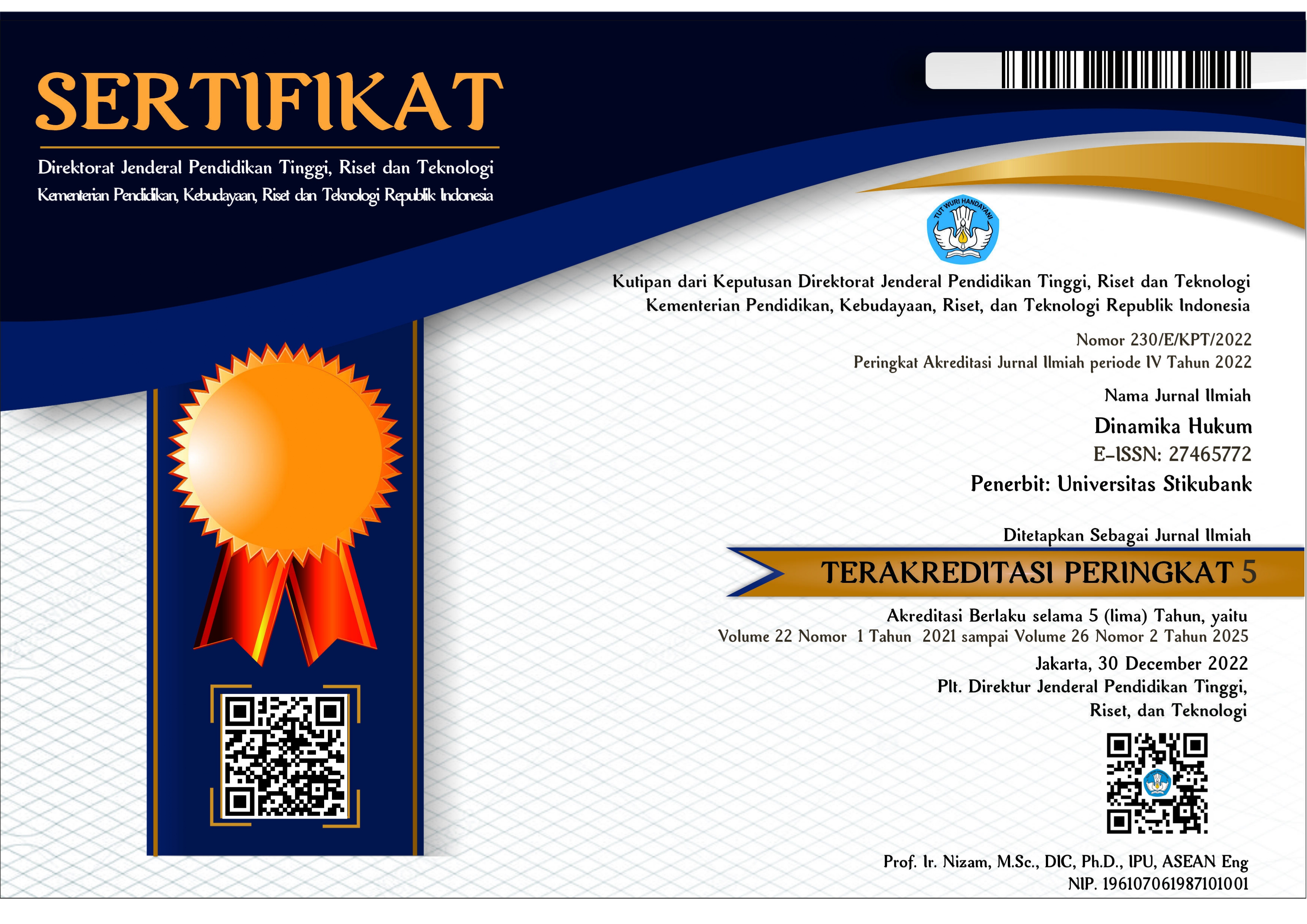AKTA PERDAMAIAN PERKARA WANPRESTASI YANG BERKEKUATAN HUKUM
Abstract
One of the problems that often arise in an agreement is default, which can result in the creditor experiencing losses due to the debtor being in default. . In the first trial, the judge usually offers a peace deed. When agreed by the parties, a Deed of Peace is issued by the court. The judge's decision of peace deed has binding power for litigants and there is legal certainty and has executive power, namely the power to carry out what is stipulated in the decision by force by state instruments. Likewise with the decision of the District Court No. 29/Pdt.G.S/2019/PN.Unr.
The problem is whether the decision number 29/Pdt.G.S/2019/PN.Unr can be appealed or cassed, how will it be resolved if the defendant in the peace deed does not comply with the contents of the deed. This research uses a normative juridical research type, which is carried out by studying legislation, theories and concepts related to the problems to be studied.
From the results of the analysis, it is concluded that the legal force of the peace deed is regulated in Article 1858 of the Civil Code and Article 130 paragraphs (2) and (3) of the HIR. This Peace Deed is essentially irrevocable. Cancellation of the Peace Deed may be requested, if its contents are contrary to the law. The legal basis for the Supreme Court Decision Number 454 K/Pdt/1991. The Plaintiff and the Defendant must comply with the contents of the Deed of Reconciliation, because it is a mutual agreement. The Deed of Peace cannot be appealed or appealed. The legal basis is Article 130 paragraph (2) of HIR. If the defendant does not comply with the decision of the Peace Deed, it can be executed by force through the court. The basis (Article 196 (HIR) and Article 207 Rechtreglement voor de Buitengewesten (RBG).
Keywords: Peace, the Power of Law, HIR and RBG












